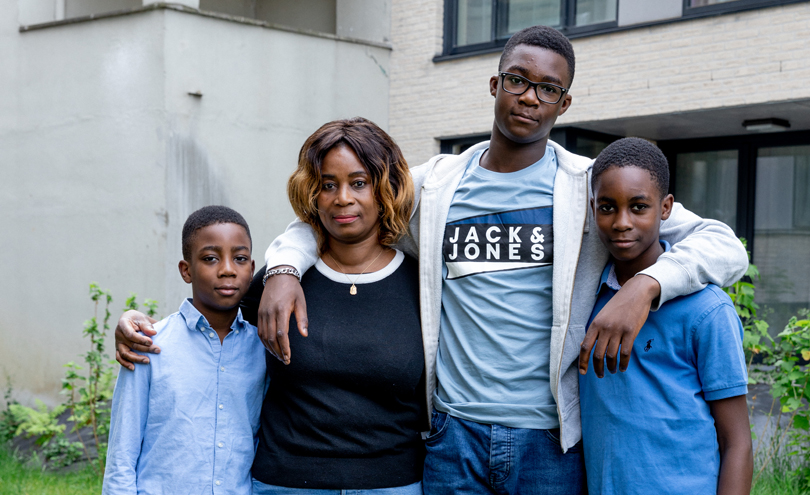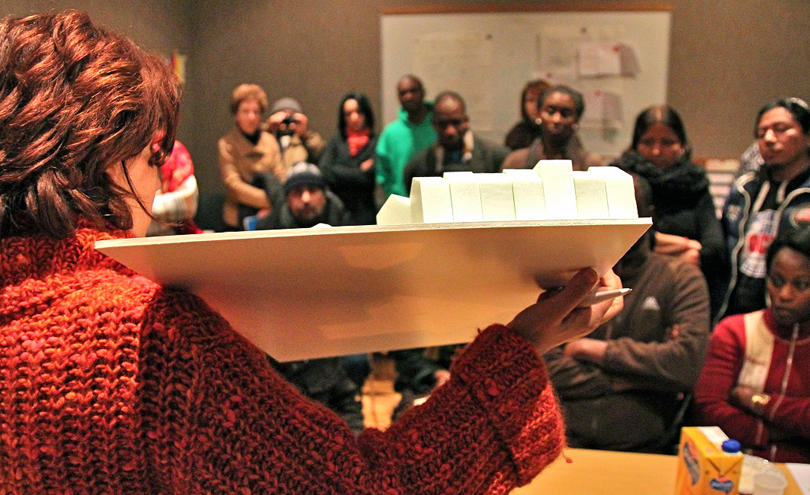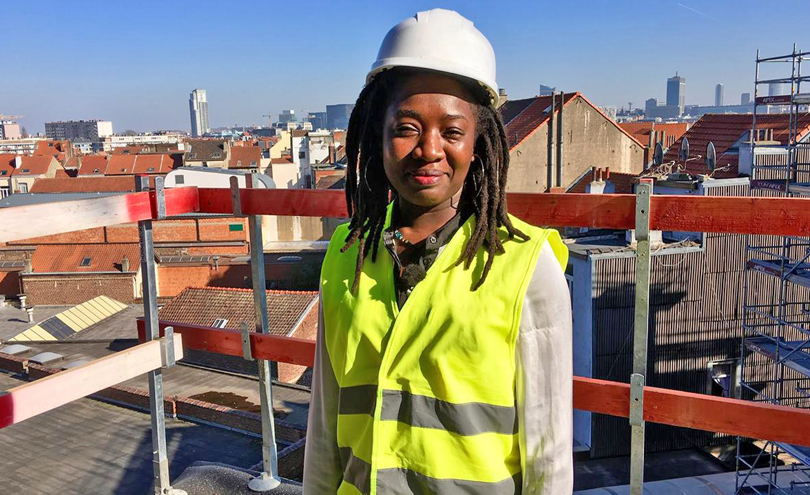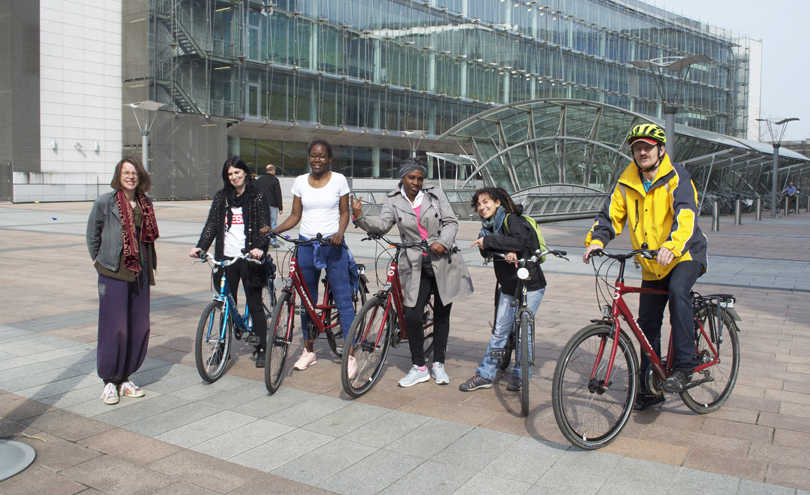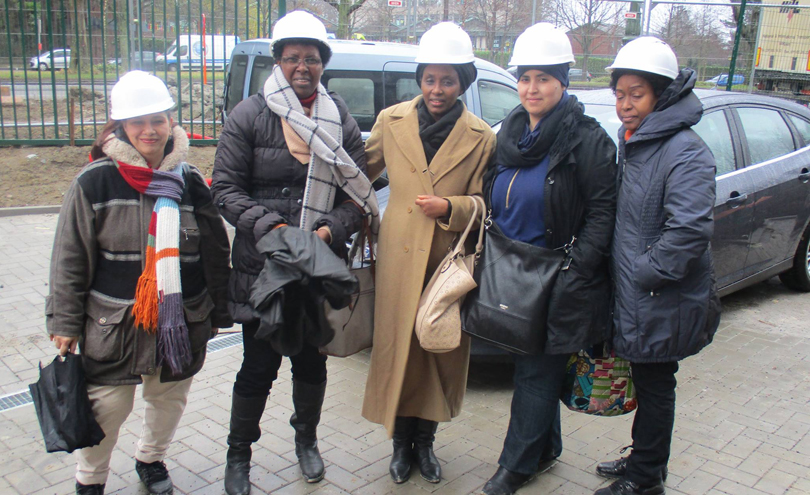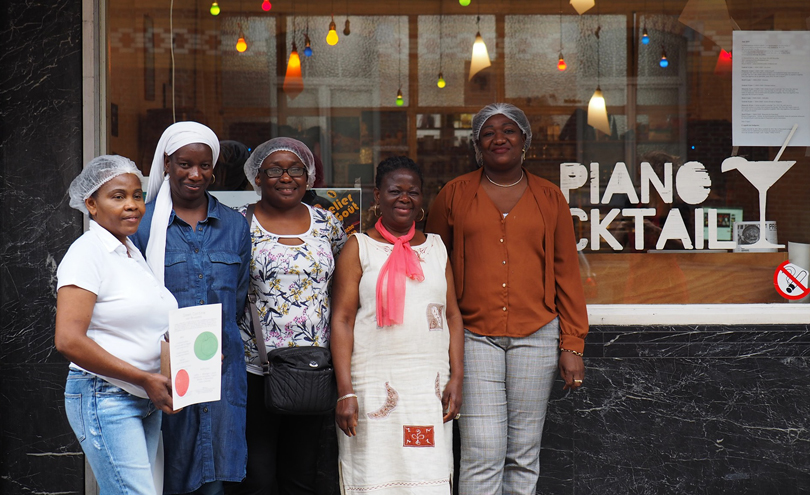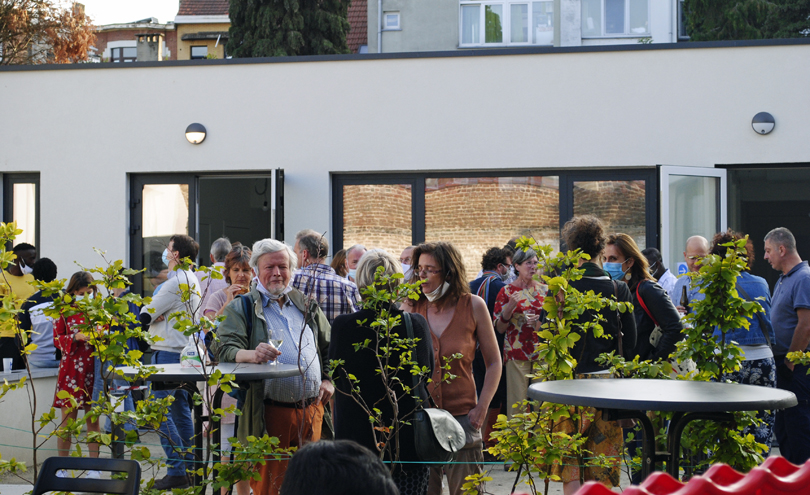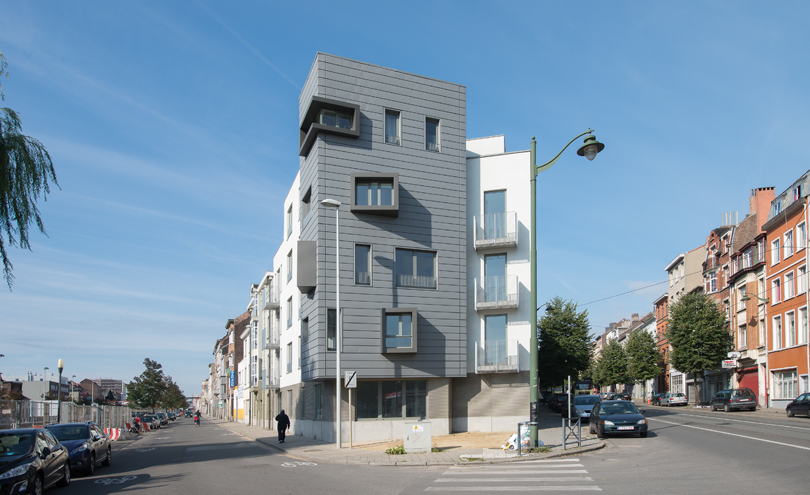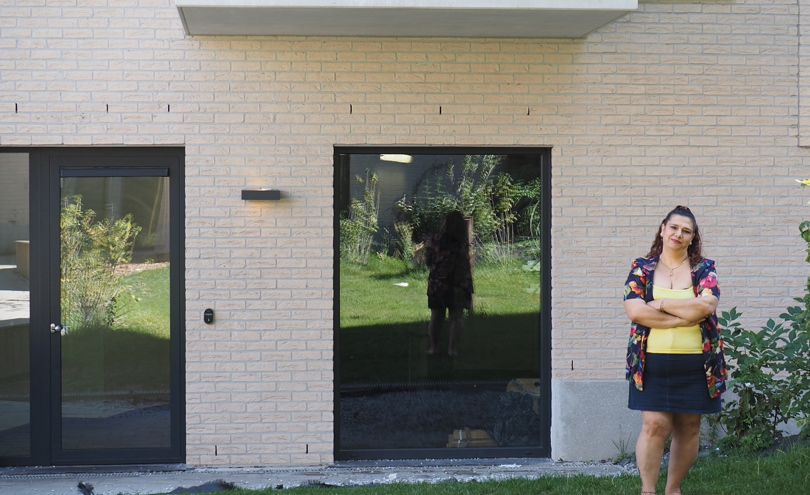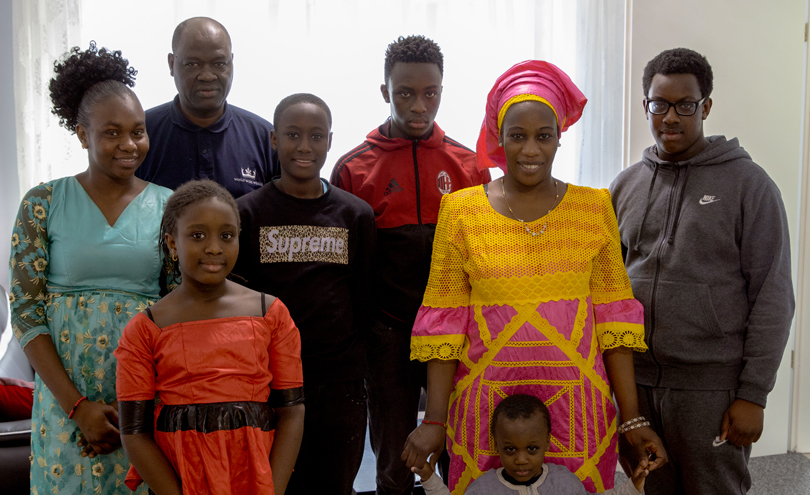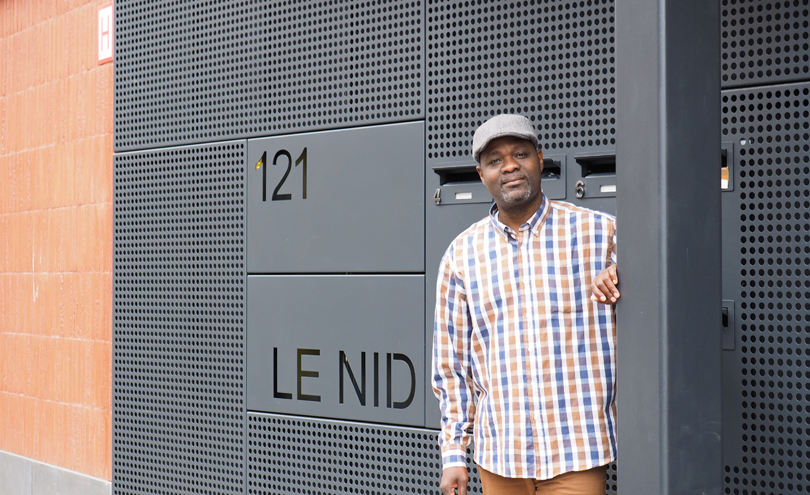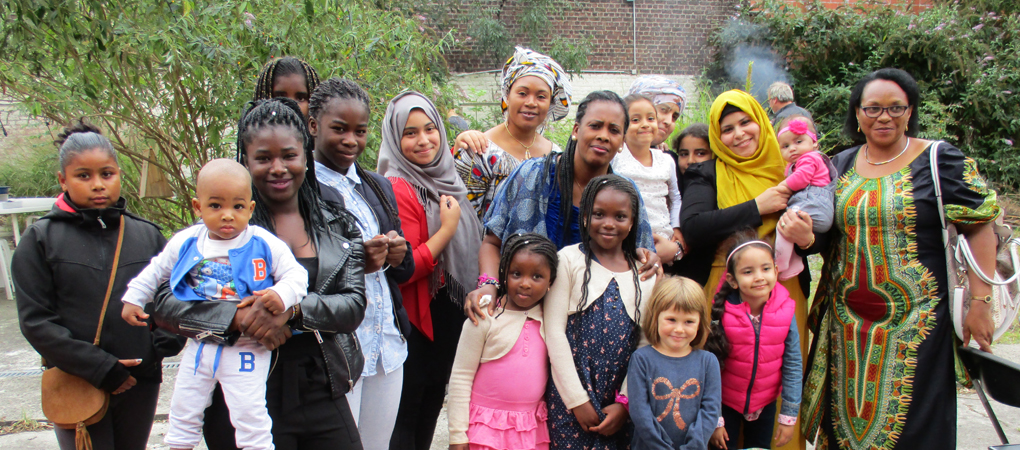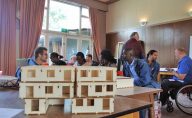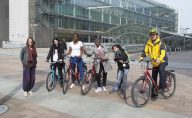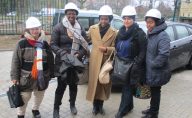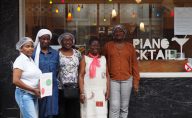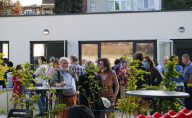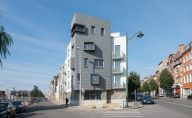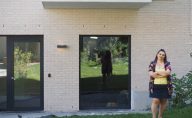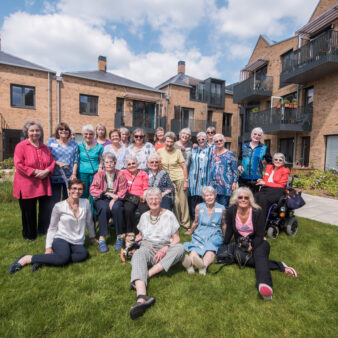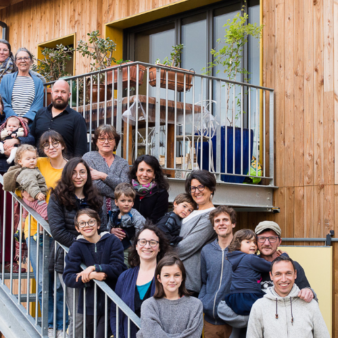Dramatically rising house prices and an insufficient supply of social housing mean people on low incomes in Brussels often face a stark choice: rent poor-quality, expensive accommodation or leave the city.
Housing policy in Belgium has traditionally supported homeownership. In the Brussels region, house prices doubled between 2000 and 2010 and have continued to rise ever since. Despite demand for social homes greatly increasing, hardly any new social housing was built. People applying for social rental housing face waiting-lists of 10 years or more, while existing affordable homeownership programmes are simply no longer affordable for low-income groups.
Community Land Trust Brussels (CLTB) offers an alternative route to affordable homeownership for people on low incomes – mostly migrant families with children. Based on Community Land Trust (CLT) models in the US and UK, CLTB develops permanently affordable housing in Brussels on collectively owned land.
In the past five years, CLTB has completed five projects, housing some 450 people in 103 homes. More than 100 homes are currently in the planning stage. CLTB homes are 20-50% more affordable than market alternatives and the organisation is now introducing a rental offer in order to serve a wider variety of people.
Using their experience in introducing CLTs in Brussels, CLTB partnered with the city of Lille, the CLTs of London and Ghent, FMDV and the UK National CLT Network to pilot the North-West Europe Interreg project – Sustainable Housing for Inclusive and Cohesive Cities (SHICC 2017-2021) – to generate knowledge, policy recommendations and a strong network on urban CLTs in Europe. The SHICC initiative also offered seed funding to early stage CLTs in several European countries (Germany, Ireland, The Netherlands, Scotland) and enabled the creation of a European CLT network.
The project in practice
When CLTB started advocating for a CLT in Brussels, the model was completely unknown in Belgium and was met with scepticism from experts, civil servants, and politicians. Through its first five housing developments, CLTB has proved that the model can be applied within Belgium’s legal system and that putting residents at the centre of housing development is both possible and extremely beneficial.
With the support of the Brussels Regional Government, and in collaboration with local associations, CLTB develops housing projects located on land owned by sister organisation, the Foundation Community Land Trust Brussels. CLTB oversees the daily management of the residential projects and currently has a team of 17 people.
The CLT model is based on three principles. First, land should not be sold and should remain the collective property of the community through the Foundation. Second, that access to a good quality affordable home is a basic right, not a commodity for financial speculation which is blocked in case of resale of the housing units by a homeowner. Third, that living together on community land empowers individuals and strengthens cohesive neighbourhoods.
Residents and prospective residents play a central role in both the governance of the organisation – making up a third of the Boards of both CLTB and the Foundation – and in the design and management of its housing projects.
Prospective owners must register as members of CLTB through its website or partner organisations to be considered for a home. They should not exceed the maximum income amounts stipulated in the local social rental housing legislation, which varies according to household composition.
The vast majority (83%) of beneficiaries have a migrant background. Among the 635 households that have so far applied to become CLTB homeowners, the heads of households were born in 66 different countries. Only just over one-in-ten (13%) were born in Belgium. The large majority were born in African countries, with almost one-in-four (23%) born in Guinea and nearly one-in-six (17%) born in Morocco.
When a new piece of land is acquired by the Foundation, a group of registered future owners is selected, ensuring a variety of household types and incomes. This group is encouraged to think about how the project can contribute to its neighbourhood and is closely involved in the selection of the architectural plan for the scheme. The prospective owners are supported through this process by a variety of local partner organisations, such as community organisations, groups devoted to helping refugees, and organisations focusing specifically on low-income women.
All CLTB’s homes are part of multi-unit buildings which are managed by the residents. The participation of families in the design and development of their homes prepares them for their future responsibilities as homeowners.
By applying the CLT principles of separating land and property value, CLTB’s homes are significantly more affordable (20-50%) than market alternatives. Fonds du Logement (the main provider of social mortgage loans in the region) funds mortgages for buyers.
The cost of the home depends on household income, with more or less subsidy applied to ensure affordability. Beneficiaries are divided into four categories. For the lowest income category – annual net income under €18,000 ($21,900 USD) for a couple with one child – the price of a one-bedroom apartment is €96,000 ($117,200 USD), about half the market price. For the highest income category – annual net income under €28,088 ($34,200 USD) for a couple with one child – the price of a one-bedroom apartment is €150,000 ($183,000 USD), about 20-30% less than the market price, or equal to market price deducting the price of land.
Funding
CLTB has a total annual budget of €2,500,000 ($3,060,000 USD). Its main funder is the public authority in charge of housing in Brussels Capital Region. The housing authority provides annual subsidies of €2,000,000 ($2,447,000 USD) to purchase land and to make CLTB’s housing affordable. The authority provides an additional payment to cover a significant part of CLTB’s operational costs. In 2020, this sum was €340,000 ($416,100 USD). Other project-specific subsidies are provided by local and regional authorities. In 2020, these totalled €150,000 ($ 183,500 USD).
CLTB plays a leading role in advocating for the CLT model across Europe. In 2020, the organisation received €120,000 ($147,000 USD) from the European Union to cover operational costs for disseminating the model.
An additional one-off European subsidy, funding from various foundations, and CLTB’s own fundraising campaign raised a further €5,082,000 ($6,220,370 USD) in 2020.
Impact
As a developer, CLTB aims to minimise the impact its buildings have on the environment. Passive energy standards must be applied to all new buildings in Brussels, but CLTB goes further by training residents to ensure they make optimal use of sustainable technologies in their homes, enhancing both comfort and cost-savings for homeowners.
CLTB has integrated clauses on sustainable and recycled materials into its public tenders and is lobbying to change planning laws to reduce the minimum number of parking spaces required. It is working with partner organisations to develop alternatives for more sustainable travel, such as stocks of shared bikes for residents.
CLTB enables low-income families to become homeowners and allows them to build up equity. The organisation’s new initiatives on rental housing will ensure an even wider group of people can access an adequate affordable home, including people experiencing homelessness and the elderly.
The community-driven approach of CLTB’s housing developments empowers residents and creates vibrant and diverse neighbourhoods that benefit the wider community. Meanwhile, the organisation’s development pipeline ensures a regular stream of permanently affordable homes for years to come with the aim of housing 1,000 people by 2030.
CLTB is also beginning to influence official policy. In January 2021, the Brussels Capital Region’s Housing Emergency Plan stated that mainstream affordable housing providers should start to apply mechanisms to create permanent affordability inspired by the CLT model. In March, the Brussels government passed legislation to allow the recognition of CLTs under Belgian law.
At the wider European level, the EU Urban Agenda on Housing now recognises CLTs as best practice, while the European Parliament Report on Housing for All calls on the EU and members states to support CLTs.
Transfer and expansion
CLTB has developed an organisational structure and a legal framework that can be adapted both inside Belgium and in countries that have similar legal systems based on Civil Law.
The organisation aims to increase development over the coming years. This will be aided by an increase in funding from the Brussels Capital Region, which plans to raise its annual subsidy to €3 million. Together with other partners, CLTB created a new real estate co-operative – Fair Ground Brussels – which will help to grow and diversify production.
CLTB is committed to promoting the CLT model outside Belgium. Together with its European partners, CLTB is advocating to gain access to European investment funds as a result of its co-operation with European partners. The organisation is actively involved in several collaborative national and international housing networks. Alongside its work for the SHICC European project, it also works closely with Housing Europe, and works in partnership with the Generative Commons Living Lab, an EU research project that supports urban commons in Europe. CLTB is also active in other international networks such as The Centre for CLT Innovation and the CoHabitat Network, and often shares its expertise and knowledge at global level
CLTB strongly believes the CLT model can help address the affordable housing crisis in countries where market prices are constantly increasing and social housing is lacking. By developing affordable homes for people on the lowest incomes, CLTB is spearheading the movement towards truly inclusive and sustainable urban development for all.
On WorldCLTDay2022 Community Land Trust Brussels had a triple celebration when on their 10th Anniversary they opened new CLT homes in Leuven and were presented with their World Habitat Gold Award – watch how it all unfolded here
